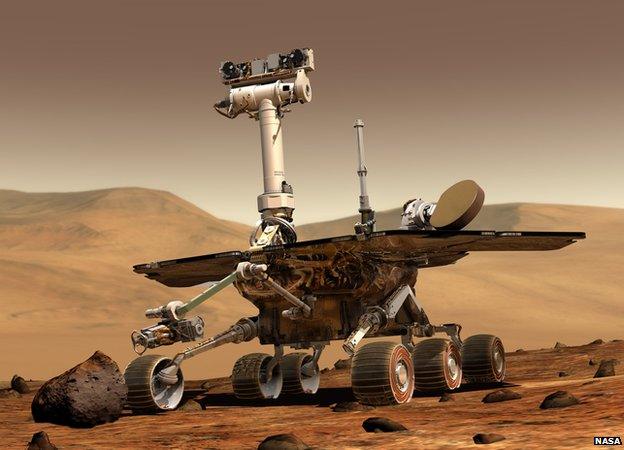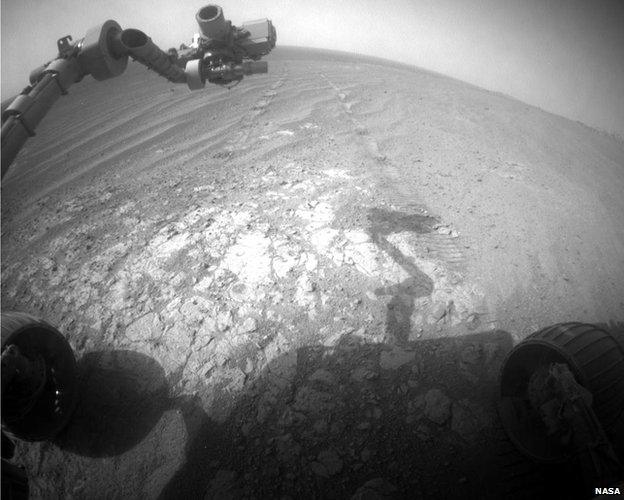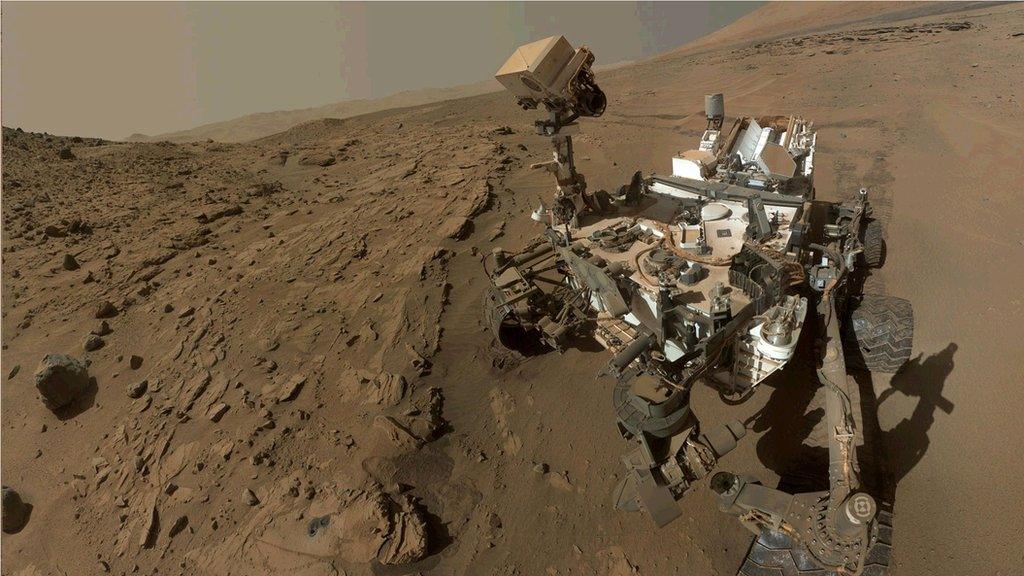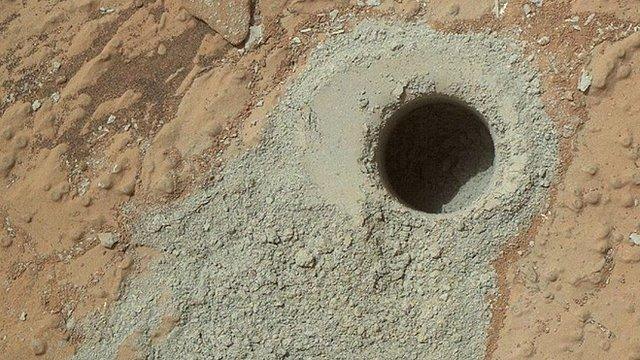Nasa to hack Mars rover Opportunity to fix 'amnesia' fault
- Published

"Where am I?" - the Mars rover Opportunity keeps wiping its own data
Mars rover Opportunity, which has been exploring the Red Planet for more than 10 years, is suffering from memory problems, Nasa has said.
The six-wheeled vehicle - not to be confused with Curiosity, which launched in 2011 - keeps resetting unexpectedly.
The Opportunity team thinks an age-related fault affecting the flash memory used by the robot is to blame.
It believes it has found a way to hack the rover's software to disregard the faulty part.
Speaking to Discovery News, external, Nasa project manager John Callas outlined how his team intended to solve the issue.
'It forgets'
He explained how the rover, like a typical computer, has two key types of memory - volatile and non-volatile.
Non-volatile memory "remembers" its information even if it is powered down, making it ideal for long-term storage, similar to how a hard drive works on a PC
Volatile memory - comparable to a PC's random access memory, or RAM - is quicker to access but requires power, so when the machine turns off, any data stored within the volatile memory is lost

The rover can still operate with the memory fault, but Nasa is keen to fix the problem
The problem with Opportunity is that its non-volatile memory is suffering from a fault, probably related to the hardware's age.
It means that when the rover tries to save telemetry data to the flash memory it fails, and so it then writes it to the volatile memory instead. When the rover powers down, the information is then wiped.
"So now we're having these events we call 'amnesia,'," explained Mr Callas in Discovery News.
"Which is the rover trying to use the flash memory, but it wasn't able to, so instead it uses the RAM... it stores telemetry data in that volatile memory, but when the rover goes to sleep and wakes up again, all [the data] is gone.
"So that's why we call it amnesia - it forgets what it has done."
Old rover
The problems are becoming more severe, Nasa says, with the memory issue causing the rover to reset itself, and in some cases stop communicating with mission control altogether.
In an attempt to solve the problem, the Nasa team is attempting to "hack" the rover's software so that it ignores the faulty part of its flash memory, and instead writes, permanently, to the healthy hardware.

Opportunity has lasted on Mars far longer than Nasa ever anticipated
The process will take a couple of weeks, Mr Callas told Discovery News. However, he added that Opportunity is ageing and could be heading towards the end of its useful life.
"It's like you have an aging parent, that is otherwise in good health - maybe they go for a little jog every day, play tennis each day - but you never know, they could have a massive stroke right in the middle of the night," he said.
"So we're always cautious that something could happen."
Even if the rover fails now, it will have comfortably exceeded the initial goal of spending three months on the Red Planet.
Ten years after it first landed, Opportunity has covered 26 miles (41.8km) of the Mars surface, and sent back vital intelligence about the planet's biological make-up.
- Published16 December 2014

- Published17 December 2014
- Published17 December 2014

- Published8 May 2013